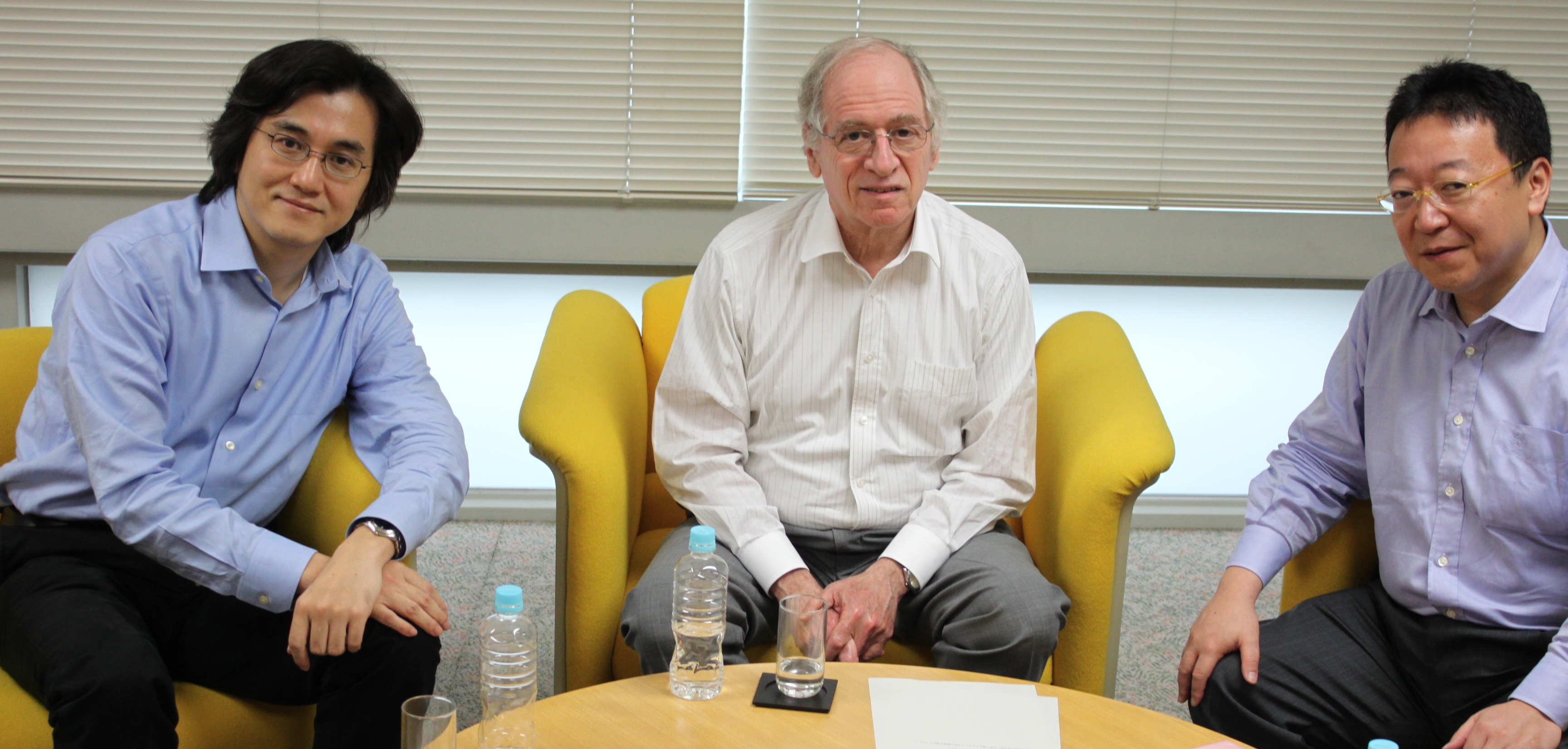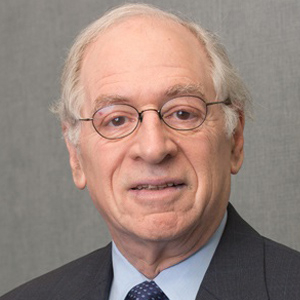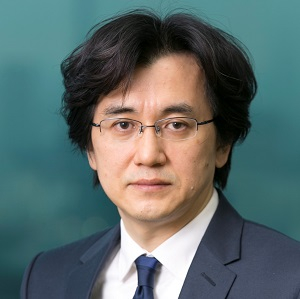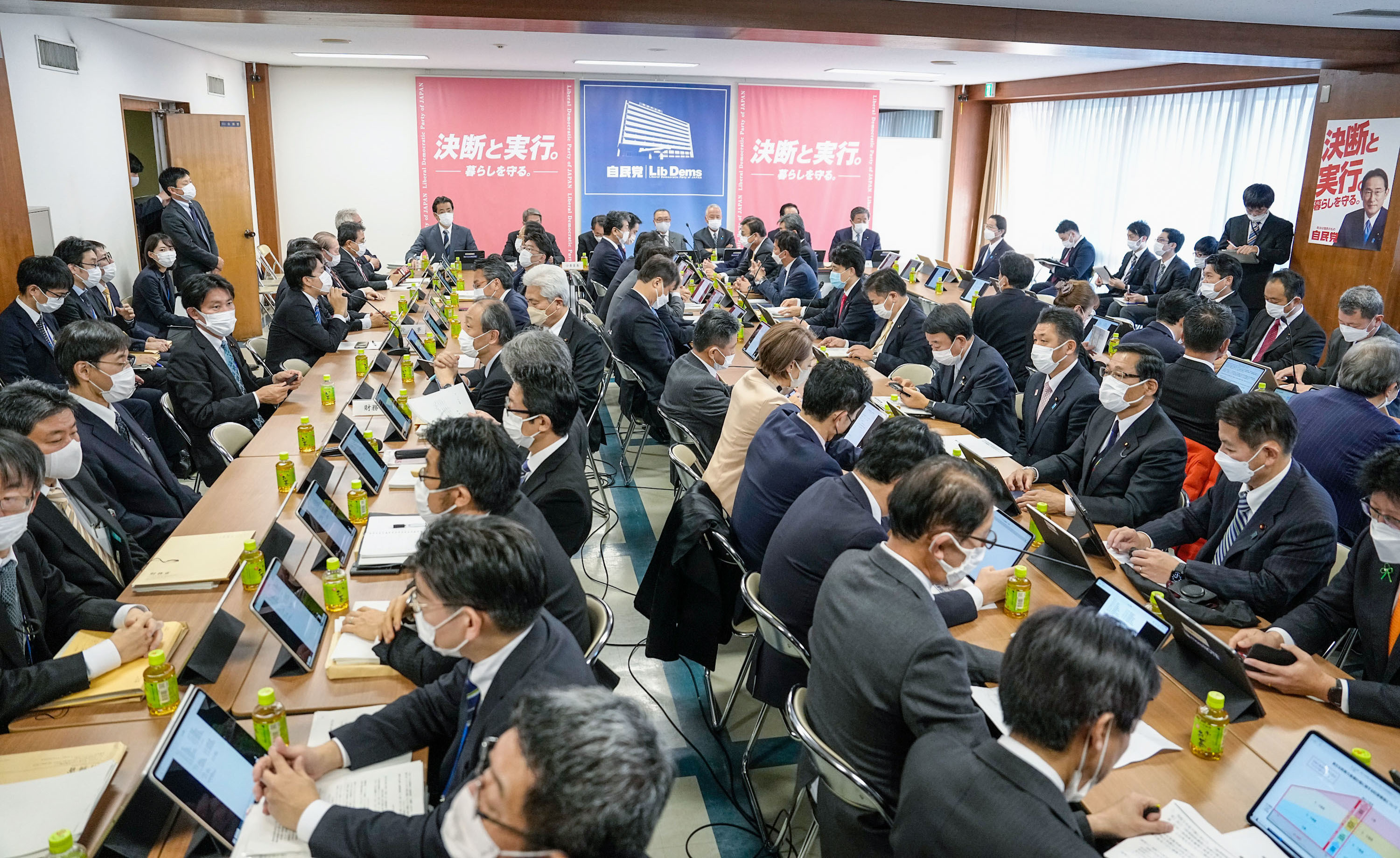In the second of a two-part series, three Tokyo Foundation senior fellows discuss the political challenges raised by the March 2011 earthquake and tsunami, training for junior politicians, the pitfalls of overexposure on television, and the shortcomings of single-seat electoral districts.
* * *
WATANABE: How Japan can nurture or educate good political leaders. This is a pressing topic, since Japan needs strong leadership right now, but how can this be done? Japan doesn't appear to have invested much on leadership education. Are there any positive signs for the future?
KATO: I think there used to be a training system for junior politicians in the LDP in the past, but that's something that is lacking in the DPJ, and it will be critical for the DPJ to develop a training system to enable junior politicians to develop their skills and gain experience.
CURTIS: There is no quick fix for this problem. We now can see that the one-party dominance of the LDP went on for too long. Half a century or so of having just one party in power has had negative consequences for political leadership. For one thing, it has led to too many politicians who are children of politicians. They may not have had the necessary passion for politics or a vision for the country but entered the profession out of family obligations. Their fathers may have been very impressive as politicians, but many of the children are not.
For another, it didn't allow opposition politicians, especially those who are now in the DPJ, to gain experience in running a government. So it’s not entirely surprising that they're running into difficulties now. All the ministers and vice-ministers are currently going through on-the-job training. The younger politicians—the Hosono and Genba—are getting a lot of training and some of them will emerge as very impressive leaders within a few years. But I don’t think there is any quick fix.
There is a leadership vacuum in Japan now, and the question is not how to find a powerful leader within the next month or two but to get politicians in Tokyo to understand that this country faces a very difficult and dangerous emergency situation in Tohoku. Japan is still a rich and powerful country, and if you can get the mindset to change, a lot can be done even without a strong political leader.
A big part of the problem is the deplorable political reporting by the media. It’s too narrowly focused on political struggles, and there is little questioning of what politicians stand for or what they hope to accomplish. Reporters are asking major DPJ figures whether they're planning to run to succeed Kan. The right question to ask is, if you became prime minister, what would you do that’s different from Kan? What would you do about nuclear energy? They don’t ask substantive questions, and they're doing a big disservice to the Japanese people.
WATANABE: Perhaps this style of reporting is another by-product of the LDP's long reign. Policy was developed chiefly among the bureaucrats, so the job of the political correspondent was to get a scoop on the latest political power play. This may be changing with the emergence of new media, but it’s a chicken-and-egg question of which should change first, politics or the media?
KATO: I've been a critic of the media for long time. I think it focuses too narrowly on minute details; it should instead be asking politicians more fundamental questions. Because of this orientation, politicians, especially young ones, tend to devote too much time on matters they should be delegating to bureaucrats. That’s one reason the DPJ government has had its hands tied.
WATANABE: Politicians appearing on TV to discuss really minute points is, I believe, a relatively new phenomena. Before the [Jun'ichiro] Koizumi administration, not so many politicians appeared on TV news shows. At critical moments, of course, senior politicians would appear on TV to explain key policy decisions, like the introduction of the consumption tax in 1980s. But recently, younger politicians are appearing on TV programs and talking about their own personal, often ill-thought-out views, rather than party policies or the consensus opinion.
CURTIS: A lot of the so-called news programs on TV tend to ask very trivial questions: When is Kan going to quit? Are you going to run? This is not what people are interested in. Too many political reporters are "inside Nagatacho." In America we have an expression, "inside the beltway." People who live in Washington, DC, think differently from other Americans, and in Japan it’s the same thing, where politics proceed according to "Nagatacho logic." The problem is that it’s not only the politicians who rely on Nagatacho logic, it’s the reporters as well. So they're always asking about things of interest only to an insider, rather than looking at things from the public's perspective.
The younger politicians who frequently appear on TV need to learn that people will lose respect for you if it appears that all you want to do is be on TV. And since they are talking about trivial issues, they look like egotistical lightweights. If they would understand that, they should say no when asked to appear on TV.
WATANABE: My father [senior DPJ member Kozo Watanabe] is a politician and still appears on TV, but he picks the program. He has refused to appear on some programs because they obviously don't respect politicians. So perhaps it's important to change the politicians’ mindset first in order to change the media.
KATO: Well, the hard truth seems to be that appearing on TV raises one's chances of winning an election. That’s why many young politicians don't refuse a chance to appear on TV.
WATANABE: Japan introduced single-seat electoral districts in 1990s, and there's clearly greater competition than before.
CURTIS: The single-member district system is very unfortunate for Japan because to win an election now, you need a majority of votes. Under the old, multiseat system, you could to win with 20 percent to 25 percent of the votes cast, so candidates spent a lot of time cultivating support from one particular part of the constituency. Now you have to reach out to everybody. You go after 100 percent of the voters and hope you get half. How do you reach 100 percent of the voters? You have to have a lot of name recognition. You want your face to be recognized. And the way to do that is to appear on TV. So, I think the system has had a lot of negative effects, and one of them is that it has encouraged politicians to seek exposure not by talking substance to groups of constituents but by simply becoming a well-known face.
WATANABE: Turning to the Fukushima nuclear accident, Italy recently voted not to restart its nuclear program. This could have a bearing on Japan's future energy policy. I was born and raised in Fukushima, and I know that for people who have been forced to evacuate—even though there was no damage from the earthquake or tsunami—the sentiment is clearly no more nuclear. Building a new plant in Fukushima—and perhaps in Japan—is now out of the question.
The issue, then, is how to reduce our reliance on nuclear power, eventually perhaps going completely nuclear-free, without slowing down economic activity. This is a big challenge. I can't imagine people one day changing their minds and deciding to reembrace nuclear energy.
The Fukushima accident has also highlighted the unevenness of economic and urban development in Japan. While people in Tokyo enjoy a rich and convenient lifestyle thanks to electricity generated at nuclear plants outside of the Tokyo metropolitan area, many rural communities, such as those in Fukushima, are very poor. The town of Okuma, where the Fukushima Daiichi plant is located, had been left behind in industrialization and urbanization, and chose to host the power plant to qualify for generous subsidies. But now, the residents who have evacuated don’t know when they’ll be able to go back home because their farms and fishing grounds have been contaminated. This is quite unfair. The question this raises is how we can continue enjoying the benefits of a prosperous economy without forcing some people to suffer hardships as a result.
CURTIS: I don’t think there is any chance that Japan is going to build a new nuclear power plant anywhere in this country for many years to come, if ever again. I think the public pressure to reduce dependence on nuclear and find other sources of energy, renewable energy, will continue to grow stronger, and so there is obviously a major energy problem. If you're relying on nuclear power to meet 28 percent of your energy needs, you can’t go to zero right away. But the reality is that there were 36 or 38 nuclear power plants that were operating in Japan at the time of the accident, and now more than 20 of them are offline for maintenance. Local governments are refusing to let them come back on, and if that continues, within about a year all the nuclear power plants will be offline and there'll be nothing being produced in the way of nuclear energy. This may be very bad for the Japanese economy, but I think many people would prefer it to living with the fear that they might suffer from radiation poisoning.
But the other thing that’s important about the Fukushima accident is that it reveals a real structural problem in the relationship between the utilities industry, the regulating Ministry of Economy, Trade, and Industry, and the politicians who either were dependent on or have received financial support from companies in the industry. This system of cooperation among the bureaucrats, politicians, and industry was not something created by Mr. Kan or the DPJ; this is a legacy of the many years of LDP rule.
Kan has confronted TEPCO and has been fighting with them, but he has been pushed back by defenders of the utilities industry. But after Kan is gone, you have to hope that politicians understand they have to come up with a new structure. This is not a uniquely Japanese problem.
After all, the Lehman shock showed us a similar system of collusion among banks, financial institutions, the regulators, and politicians in the United States, and all so modern democracies face this kind of problem to an extent. But for Japan, the consequence has been particularly tragic because it has affected people’s health.
Iidate is a beautiful village some 80 kilometers away from the nuclear power plant that wasn't affected much by the earthquake or tsunami, but now it’s a ghost town. People had to leave because the wind carried the radiation from the plant to that village. The conflict between ensuring personal wellbeing and concern about the economy is going to be big issue for whoever becomes Japan's leader.
WATANABE: How does this situation look to you, Mr. Kato, inasmuch as you once worked for METI?

KATO: Professor Curtis talked about the close relationship between the utilities, METI, and politicians. I think you can include the media as being part of the close-knit group. Because the utility companies have been major political donors, they have very close relationships with politicians. Their relative power declined following the long-term economic downturn in the 1990s, but when I entered METI in 1990, the utilities were a very powerful industry. Interestingly, almost all the governors of the prefectures where the
utility companies are headquartered are former METI officials. Tokyo is an exception, but it's true in Hokkaido, Niigata, Hiroshima, Fukuoka, and Okinawa. While the Osaka governor is now [Toru] Hashimoto, his predecessor was an ex-METI bureaucrat. This is the power of the utility companies.
The advantage of the DPJ is that it’s free of such an LDP legacy. This is the area where they should exert their energies to destroy this collusive political and economic structure.
WATANABE: I used to live “inside the beltway” myself, and I did notice the kind of problems that both of you have just alluded to. This is a topic that all democracies will probably need to address.
I think we covered a lot of territory, so I’d like to wrap up. Thank you very much for your time.





